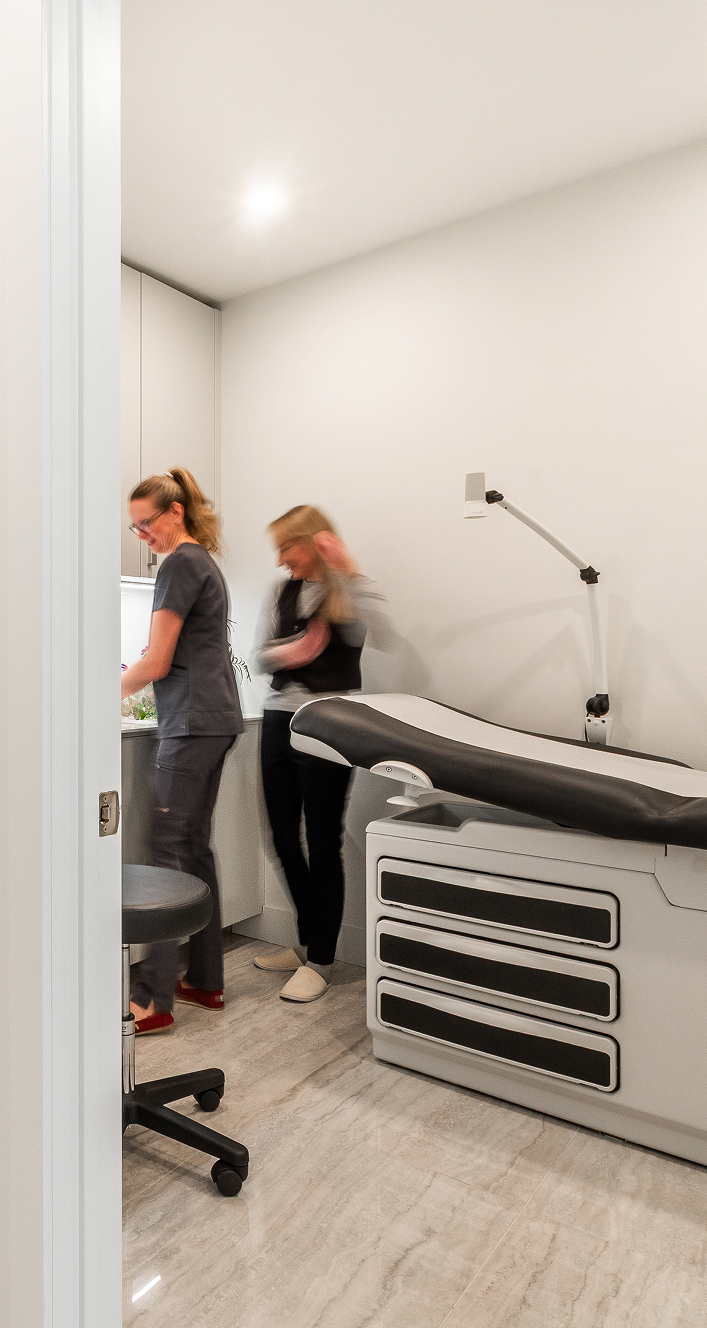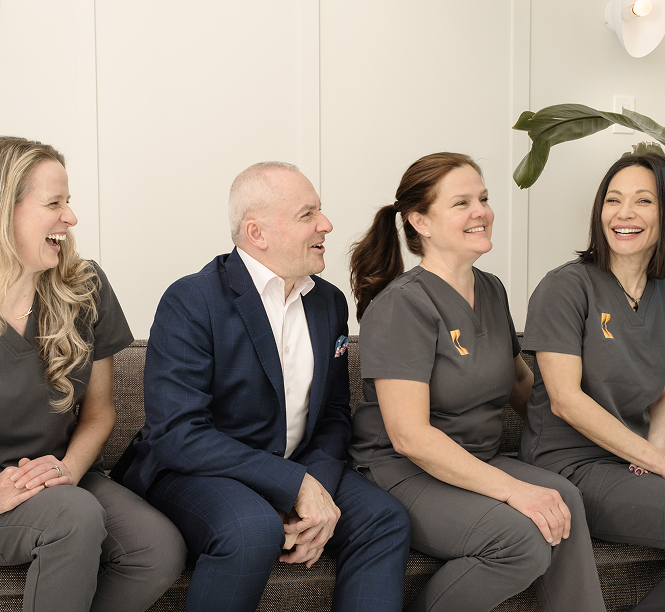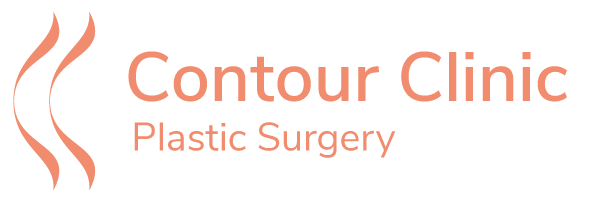Our Philosophy
Caring for people, not just customers
A practice without breast implants
A decision based on clinical experience
After performing hundreds of breast augmentations, Dr. Nicolaidis came to a troubling conclusion: it’s impossible to predict which patients will develop an undesirable, sometimes serious reaction to their implants. While some women seem to tolerate breast implants, others may develop a range of chronic, often disabling, symptoms. In this context, continuing to place implants while removing them from others seemed incompatible with his medical ethics.
Since this transition, Dr. Nicolaidis has dedicated a great deal of his practice to explantation, becoming the leading Explant Surgeon in Canada, with over 1300 explantations performed as of January 2026. He also regularly speaks at medical conferences to raise awareness in the medical community about Breast Implant Illness (BII) and post-explant realities.
A bit of history: implants under surveillance
Introduced in 1962, silicone gel breast implants quickly raised concerns. As early as 1964, unexplained symptoms reported by patients led to the creation of the term “human adjuvant disease”. Despite this, their complaints have long been ignored, labeled as “problems in their heads.”
In the 1970s, textured implants were developed to reduce capsular contracture. However, patient complaints of symptoms related to breast implants persisted. In 1992, faced with the accumulation of reports and the lack of independent data, the FDA suspended silicone gel implants. While several studies affirmed their safety, most of those studies were funded by the breast implant industry — a conflict of interest that is now widely denounced.
In 2006, gel implants returned to the market. And patients continued to complain of symptoms, only to be told that breast implants were completely benign. In 2011, a link was established between textured implants and a rare cancer of the immune system: breast implant-associated anaplastic large cell lymphoma (BIA-ALCL). In 2019, Health Canada withdrew Allergan’s Biocell textured implants, which have been linked to 85% of global cases of this cancer.
Breast implant companies could no longer say that their implants were completely benign…
"It's not in your head... it's in your breasts"
Thanks to social media, thousands of women have found the strength to speak out. This mobilization has led to increased recognition of the BII (Breast Implant Illness) by public health authorities and several medical associations. Dr. Nicolaidis is a strong supporter of this cause. A large part of his practice is devoted to explantation (capsulectomy), usually accompanied by a breast lift to help patients feel good about their bodies again. For him, the goal is not just to remove an implant, but to contribute to healing, both physical and psychological.
A clear commitment, a practice aligned with its values
Dr. Nicolaidis refuses to participate in a system where risks are minimized to preserve economic interests. His approach is based on integrity, independent science and the long-term well-being of patients. At Clinique Contour, placing a breast implant is not an option. Listening, understanding, accompanying — that’s what you’ll find here.
Since May 2021, Dr. Stephen Nicolaidis has made the firm decision to no longer place any breast implants, regardless of their nature. This choice is based on a deep ethical reflection, based on years of practice, a rigorous review of the scientific literature and, above all, attentive listening to his patients.
For more detailed information about Dr. Nicolaidis’ expertise in breast explantation, visit the Montreal Explant Center.

Ready to learn more?
Schedule a consultation with Dr. Nicolaidis and discover his approach to breast surgery, body contouring, and explantation.

Our strengths
Integrity and transparency:
A clear commitment
A clear commitment
At Contour Clinic, integrity guides every medical decision. Dr. Nicolaidis chose in May 2021 to completely stop the placement of breast implants because he could no longer, in good conscience, recommend a procedure which might cause harm to patients. All patients respond to breast implants to some degree and no professional can guarantee that there will be no long-term complications. Continuing to place implants while removing implants from others went against his professional values.
Good to know: About 20% of women with breast implants will require revision surgery within 10 years of implantation. Moreover, Health Canada now recommends the replacement breast implants every 10 years. For these reasons, breast implants require multiple surgeries over the course of a lifetime, a fact that few Plastic Surgeons address.
By focusing on sustainable, proven and safe interventions, Dr. Nicolaidis remains true to his mission: to provide honest, ethical care that focuses on the real well-being of patients.
Patient Safety
At Contour Clinic, patient safety is our priority. Minor procedures are performed in the conviviality of our Montcalm Street office, while major operations take place in an accredited surgical center, under the supervision of an anesthesiologist. This ensures patient safety and comfort throughout the procedure. Contrary to popular belief, general anesthesia is the safest approach for patients; rather, excessive sedation in the absence of a dedicated anesthetist is the real danger. By entrusting this responsibility to a qualified anesthesiologist, Dr. Nicolaidis can fully focus on the surgery and provide you with the best results.
Proven treatments:
Concrete results
Concrete results
To remove a significant excess of fat, liposuction remains the most effective method. No non-invasive treatment comes close. While many non-invasive technologies often require several sessions, none will guarantee results of any kind. You pay for each visit, whether there is a visible effect or not.
The same goes for stretch marks and sagging skin. When firming is necessary, only surgery can provide a real and lasting result. To date, no non-invasive technology has demonstrated scientifically recognized effectiveness in tightening the skin or eliminating stretch marks.
Dr. Nicolaidis recommends only proven treatments that are backed by real-world results, not vague promises or industry-funded studies.

